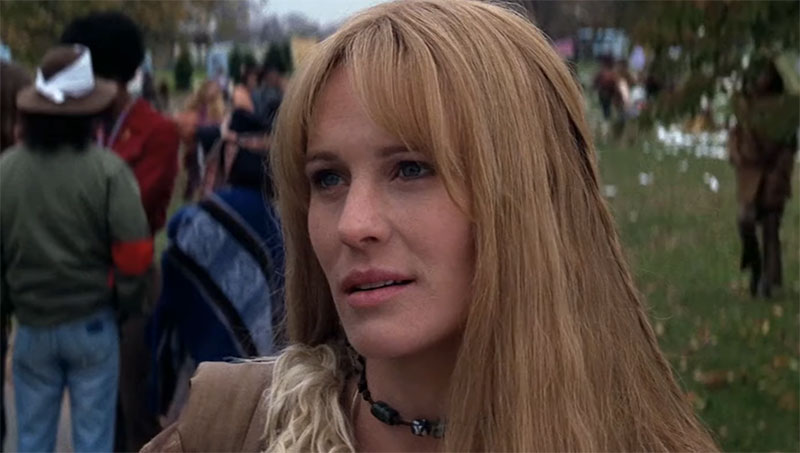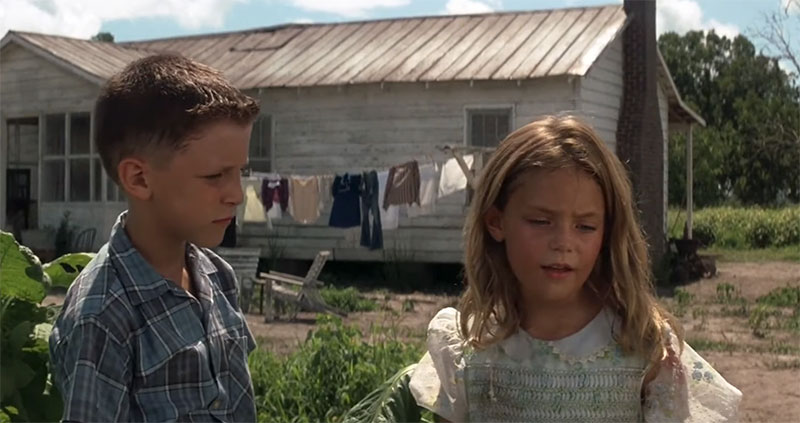
Amidst the endless digital chatter dissecting films and fictional lives, Jenny Curran from “Forrest Gump” has emerged as a controversial figure, sparking online backlash.
Portrayed by many as capricious and even cruel, her character has been a lightning rod for criticism. Yet, beneath the surface-level judgments lies a narrative steeped in trauma and abuse.
A closer examination of Jenny’s life reveals that her actions, rather than being mere whims or betrayals, are deeply rooted in the scars of a tumultuous childhood.
This article delves into the complexities of Jenny’s character, challenging the prevailing internet narrative and shedding light on the profound impact of early-life trauma on behavior and choices.
Understanding Jenny: The Echoes of a Traumatic Past
Jenny Curran’s character has been unfairly villainized over the years. While she is not presented as the antagonist of “Forrest Gump,” the internet has been rife with criticism, with some even labeling her as one of cinema’s worst villains.
However, there are several reasons why this perception is misguided:
From a psychological standpoint trauma, especially when experienced during formative years, can have profound and lasting effects on an individual’s cognitive, emotional, and behavioral development. Jenny Curran’s character in “Forrest Gump” provides a compelling portrayal of the complexities of trauma and its reverberations throughout one’s life.
Childhood Trauma

Jenny’s childhood was anything but idyllic. Subjected to physical and sexual abuse by her father, she grew up in an environment devoid of safety and trust.
The home, which should be a sanctuary for a child, became a place of nightmares for Jenny. Her desperate prayers to be turned into a bird and fly far away underscore her yearning for escape from the horrors she faced daily.
Such adverse childhood experiences (ACEs) are known to disrupt normal neural development, leading to alterations in brain structures and functions associated with memory, emotional regulation, and decision-making.
As Jenny transitioned into adolescence and adulthood, the weight of her trauma became evident.
Coping Mechanisms
Jenny’s engagement in risky behaviors, such as drug use and relationships with abusive partners, can be understood as maladaptive coping mechanisms.
These behaviors might serve as a way to numb the pain, regain control, or even recreate familiar trauma scenarios in an unconscious attempt to resolve them.

Dissociation is a common response to trauma, where the individual disconnects from the present moment, their surroundings, or their physical body.
Jenny’s moments of escapism, whether physically running away or mentally distancing herself from painful memories, can be seen as dissociative responses, helping her cope with overwhelming emotions.
Attachment and Relationships
Forrest Gump’s unwavering love and innocence stood in stark contrast to the chaos and pain that defined much of Jenny’s life.
While he saw the world with childlike wonder, Jenny had been robbed of her innocence at a tender age. Her relationship with Forrest was complex.
At times, she pushed him away, not out of malice, but perhaps out of a fear of tainting his purity with her perceived brokenness. At other moments, she sought solace in his simplicity, finding brief respite from her internal turmoil.
Children who experience abuse often develop insecure attachment styles. Jenny’s tumultuous relationship with Forrest can be seen through this lens.
While Forrest offers consistent and unconditional love, Jenny’s insecure attachment, stemming from her early betrayal by a primary caregiver, makes it challenging for her to trust and accept this love.
She may fear getting too close, anticipating betrayal or hurt, leading to her frequently distancing herself from Forrest.
Self-Worth and Self-Sabotage
Childhood trauma, especially of a sexual nature, can lead to feelings of shame and low self-worth. Jenny’s actions, such as pushing Forrest away or engaging in self-destructive behaviors, can be seen as manifestations of these deep-seated feelings.
From a psychological perspective, individuals with low self-worth might engage in self-sabotaging behaviors, feeling they don’t deserve happiness or love.
This belief is evident in her interactions with Forrest. She often fled from his unwavering affection, not because she didn’t care for him, but because she felt unworthy of such pure love.
The Healing Journey

Towards the end of the film, Jenny’s return to Forrest and her decision to introduce him to their son indicates her journey towards healing. Recognizing and confronting one’s trauma is a crucial step in the therapeutic process. Her actions suggest a desire to break the cycle of trauma, offering her son a different, more secure upbringing than she had.
Jenny Curran’s character offers a poignant exploration of the multifaceted impact of childhood trauma. From a psychological perspective, her behaviors, while at times perplexing, align with the known repercussions of early adverse experiences.
Understanding her actions through this lens underscores the importance of empathy and compassion when interacting with trauma survivors.

